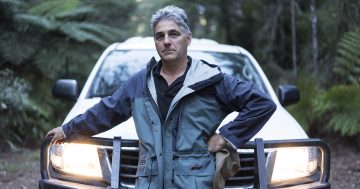
Greenwashing is a harmful practice that 57 per cent of businesses in an ACCC study are involved in. Photo: File.
More than half the businesses in a recent ACCC study were found to be guilty of the worrying practice of greenwashing. While many breaches might be out of ignorance, they come at enormous cost according to one industry professional.
ClimateClever founder Dr Vanessa Rauland said not only did greenwashing diminish the efforts of businesses that had genuine claims, it eroded consumer confidence in green products.
“Some people have understandably become dubious about any business claiming to be carbon neutral or environmentally friendly,” she said.
“It’s harmful to business but ultimately, it’s the planet that will lose out if we don’t get a handle on it.”
Greenwashing occurs when a company makes an exaggerated or misleading claim about its environmental achievements.
In her role at the helm of a company that assists businesses with measuring their carbon emissions transparently, Dr Rauland has witnessed it in many forms.
“A company might claim they’re carbon neutral when it’s only their head office, not their entire organisation,” she said.
“Some companies sell so-called carbon neutral products made from fossil fuels, such as ‘carbon neutral gas’. They make it sound like a green product but what they mean is that they have purchased carbon offsets.
“This is compounded by the fact that the integrity of offsets has been called into question in recent times. If a company really wants to make a difference, they will look at ways to reduce their emissions in the first place and only offset what’s left over.”

ClimateClever founder Vanessa Rauland says a lot of false “green” claims arise from a lack of understanding. Photo: ClimateClever.
As the Australian Competition & Consumer Commission cracks down on greenwashing, Dr Rauland warns businesses will come under pressure to be transparent about what emissions they’ve reduced or offset.
Already she has noticed an increased appetite from major contract owners – particularly government – to work with suppliers that have clearly delineated measures, a plan, or at least genuine indicators they have embarked on a climate journey.
It’s part of the reason ClimateClever works in partnership with Industry Capability Network (ICN).
“ICN had identified that taking climate action was becoming more and more important and some of their bigger project owners, when listing their projects on ICN Gateway were starting to enquire about environmental management plans and carbon emissions,” she said.
“This appears to be trickling down to the suppliers, with more than 50 per cent of the businesses registering interest with ClimateClever, indicating they have either been tasked with finding a solution to their environmental impact or that it’s their single biggest priority right now.
“Smaller businesses were a bit confused and didn’t know how to start the process, and traditionally it’s been an expensive undertaking. So ICN wanted an affordable solution for their SME members to explore this so they could remain competitive when it came to winning valuable tenders.”
All ICN Gateway subscriptions, including the free version, asks the question: “Do you want to take climate action?”. If a business opts in, ClimateClever gets the ball rolling, and ICN subscribers get a 10 per cent discount on services.
ClimateClever is an online platform that helps businesses, particularly small to medium enterprises (SMEs) get started on their carbon reduction journey.
It offers a simple and low-cost way for businesses to accurately measure their footprint and identify actions they can take to reduce it.
“A lot of false claims are made when businesses, particularly smaller ones that don’t have huge amounts of resources to invest in this, don’t realise what’s included in their ’emissions boundary’. Most people know about measuring their utilities, travel, rubbish. But they may, for example, not consider emissions generated by third party contractors as a direct result of their operations,” Dr Rauland said.
“We need to help businesses get over the fear of getting started, to take the first step towards understanding what their climate impact is and acknowledging that it’s a journey.
“We’re excited about this partnership because we will not only be helping suppliers to larger projects – but we can also help larger project owners to aggregate and better understand their ‘scope three emissions’.
“This has the potential for a big impact.”
Subscribe to ICN Gateway here.
Original Article published by Dione David on Riotact.









